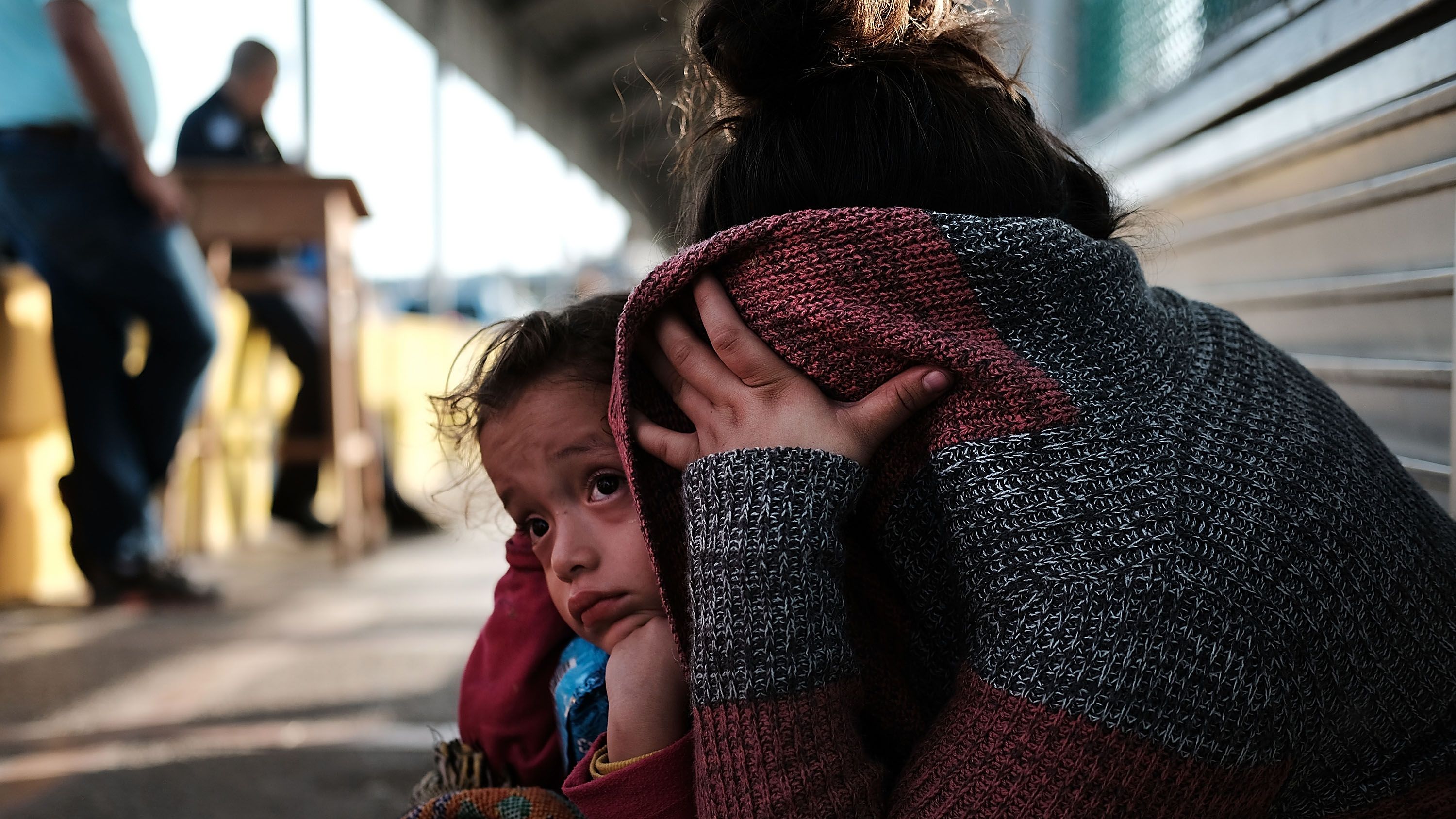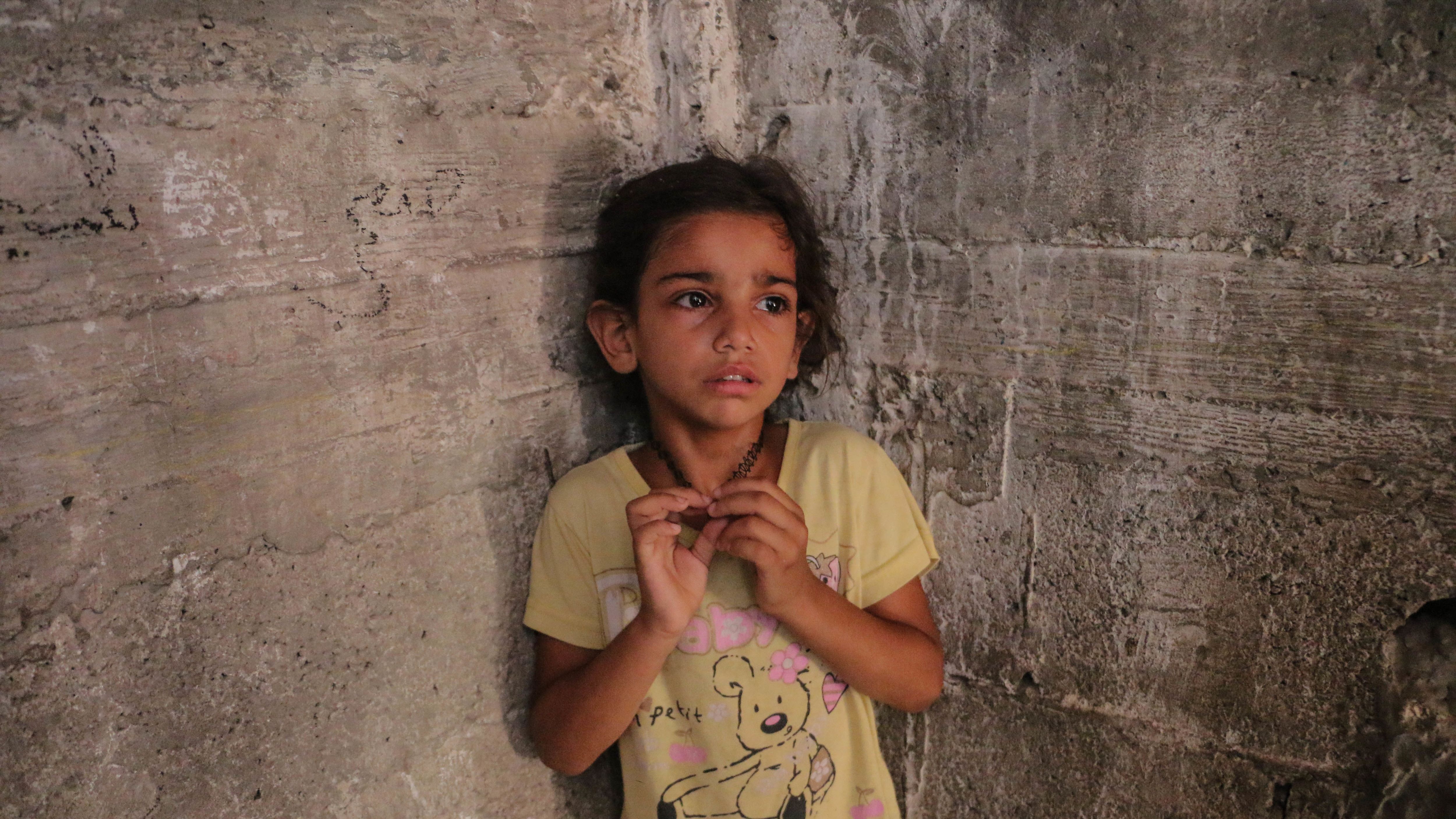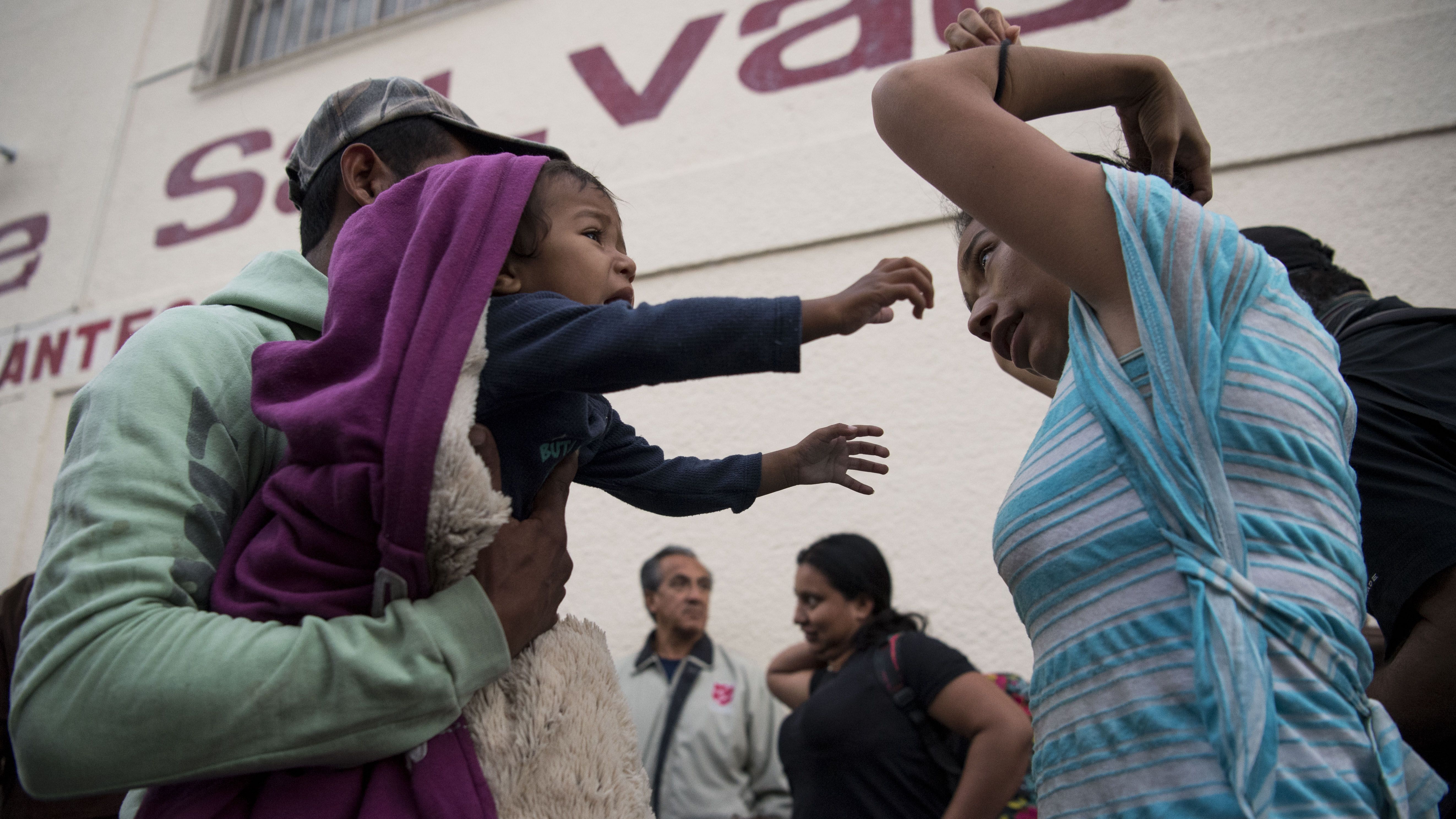If the News Cycle Is Giving You Compassion Fatigue, Here's What You Can Do
Experts explain how to fight numbness when everything is really, really bad.
It’s not just you: The news lately has been exhausting. Just this week, abortion access was even further restricted, the Supreme Court upheld President Trump’s despicable travel ban, and there’s still no clear plan for reunification of immigrant children separated from their families—an immensely difficult crisis to watch unfold for a prolonged amount of time. But although it’s taboo to admit, it’s sometimes equally as exhausting to feel like you have to perform the requisite anger, disbelief, and sadness about the bad news. When so many bad things are happening, empathy can seem like less of a virtue and more of a burden.
If you’re having trouble connecting to the people most affected by this bad news—the immigrant children separated from their families, for example—you’re not a bad person. You may be experiencing compassion fatigue, a condition usually seen in those who work with terminally ill people, victims of natural disasters, or injured animals, but which can also affect everyday empathetic folks who are just paying attention.
So what is compassion fatigue, and how do you combat it when the hits won’t keep coming? Marie Claire talked to experts to find out what you need to know.
What exactly is compassion fatigue?
To put it in clinical terms, compassion fatigue is a traumatic stress syndrome, where a caretaker’s ability to empathize with those in their care weakens. In short, it means you find you don’t care about things you know you should care about.
“It’s the fatigue of feeling compassionate as a result of contact with suffering people or animals who are afraid and need comfort,” says Dr. Charles Figley, Ph.D, Director of Tulane University Traumatology Institute, via email to Marie Claire. “The fatigue can come instantly, because it may have reminded some of past traumatic events, such as being abandoned as some time, or [even] being separated from one of our children at the mall.”
That means if you’re reminded of something personally traumatic while witnessing others’ suffering, you could be at risk for compassion fatigue.

Who gets compassion fatigue? Can the news trigger it?
“Simply put, caregivers are at risk of being traumatized by the caregiving work they choose to do,” says Patricia Smith, founder of the Compassion Fatigue Awareness Project. Though she says that not everyone in a caregiving profession is at-risk for compassion fatigue, “caregivers are empathetic, which means we open our hearts to the pain and suffering of others.” While Smith says that “watching the news in and of itself most likely does not cause compassion fatigue,” those who already have it who watch distressing news might experience higher levels of it.
Get exclusive access to fashion and beauty trends, hot-off-the-press celebrity news, and more.
Smith also points out that people with certain traits are predisposed to compassion fatigue, like those who have a heightened sense of responsibility (such as those who were forced, by family dysfunction early on, to take care of younger siblings), those with a lack of personal and professional coping skills (those who never had healthy behaviors modeled for them), or unresolved early traumas (those who don’t take the time to process past trauma).
For his part, Figley says that an inability to connect emotionally with, for example, the migrant children at the border, is symptomatic of compassion fatigue. “The struggle to connect means that they’ve removed themselves from providing empathy and compassion because their emotional support can’t stop the unthinkable regarding the kids,” he says. “They had an immediate impact of the news and attempted to emotionally distance themselves from the details—good move!—but they were still affected, like how phobics are affected by things they fear.”
Bad news is triggering because of the trauma we’re all carrying around, which is why it can feel like what’s happening to separated families is happening on a more personal level—and thereby make us want to tune it out as an act of self-defense. “News consumption is like a drug that, in the right dosage, is useful since knowledge and truth are power, but which can facilitate compassion fatigue,” says Figley. “Those who experience compassion fatigue have not succeeded in fully processing the reality of the kids [separated from their families] and cannot effectively detach themselves to function well. There’s still an emotional fatigue.”

What are the symptoms?
Compassion fatigue may want to make you just clock out and turn the news off, but it can also come out in more destructive ways. Smith says that in addition to more obvious tells, like sadness, apathy, and bottled-up emotions, it can also manifest as substance abuse, lack of personal hygiene habits, emotional outbursts, physical ailments that keep coming back, and traumatic flashbacks or nightmares. “Our overworked, stressed bodies are sending us a signal that self-care and healing is required,” she says.
How can I fight it?
First, the bad news (yes, more): Once you identify compassion fatigue in yourself, you can only manage the symptoms, says Smith. But the good news is, it’s entirely doable. The key is, as they say on airplanes, to put your own oxygen mask on before trying to help other people.
Smith suggests practicing “authentic, sustainable self-care daily.” She continues, “We do this by naming the behaviors and actions that fill us up. Swimming, reading, journaling, walking in nature, sharing highly functional relationships, cooking, gardening—whatever it is that fills us up and provides feelings of hope and wellness, we need to do daily. Focusing on ourselves is the best thing we can do. If we are depleted, we have nothing to give others.”

Figley adds that doing our part for the cause we are concerned about, even in small ways, can help. “A sense of clarity about your values is important,” he explains, and says that even just sending a tweet can help. But ultimately, you have to take care of yourself. “The other thing we all need is effective methods of self-care: Stress management, skills for facilitating good sleep, living a healthy life, and [make sure you] have people to talk to. Being connected to a community of friends and family are important at any age.”
Even though it can feel really hard to want to tune back into the crisis with separated families—so much news has already happened since then—it’s important we don’t forget about those families with the sheer force of the bad news. For a small thing you can do to help, check out these four tips for donating, volunteering, and marching.
There are also nationwide protests of family separation planned for June 30. To pledge to march and find an event near you, go here.
Cady has been a writer and editor in Brooklyn for about 10 years. While her earlier career focused primarily on culture and music, her stories—both those she edited and those she wrote—over the last few years have tended to focus on environmentalism, reproductive rights, and feminist issues. She primarily contributes as a freelancer journalist on these subjects while pursuing her degrees. She held staff positions working in both print and online media, at Rolling Stone and Newsweek, and continued this work as a senior editor, first at Glamour until 2018, and then at Marie Claire magazine. She received her Master's in Environmental Conservation Education at New York University in 2021, and is now working toward her JF and Environmental Law Certificate at Elisabeth Haub School of Law in White Plains.